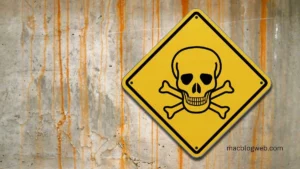Key Takeaways:
- Lemon laws protect consumers from purchasing defective vehicles.
- Understanding eligibility criteria is crucial for filing a successful claim.
- Georgia’s lemon laws have specific stipulations that differ from those of other states.
- Documentation and legal advice can significantly impact the outcome of a claim.
Table of Contents:
- What Are Lemon Laws?
- The History of Lemon Laws
- Eligibility Criteria
- How to File a Lemon Law Claim
- Common Challenges and Solutions
- The Importance of Documentation
- Legal Advice and Representation
- Final Thoughts
What Are Lemon Laws?
Lemon laws are a comprehensive set of consumer protection regulations enacted to safeguard individuals who inadvertently purchase defective vehicles that fail to meet specific quality and performance standards. These laws ensure that if a car has significant issues affecting its safety, use, or value, the consumer is entitled to either a replacement or a refund. This can alleviate the burden of owning a lemon, saving the consumer from prolonged inconvenience and financial loss. In Georgia, the GA lemon law outlines specific guidelines and steps that consumers must follow to file a claim and seek redress successfully. These laws are particularly beneficial as they offer a structured pathway to resolve disputes between consumers and manufacturers, ensuring that the consumer’s rights are upheld.
The History of Lemon Laws
The inception of lemon laws can be traced back to the early 1980s, emerging from a growing wave of consumer advocacy aimed at combating the rise of defective automobiles. These laws resulted from increasing complaints from individuals who had purchased faulty vehicles and found themselves trapped with expensive, unreliable cars. Lemon laws were implemented to offer a structured recourse for consumers, ensuring they weren’t left financially vulnerable due to manufacturing defects. According to experts, while the specifics of these laws can differ from state to state, their overarching aim remains unchanged: to protect consumers from being stuck with defective goods. Introducing these laws has fundamentally changed the landscape of consumer rights, providing a robust framework for addressing grievances related to faulty vehicles.
Eligibility Criteria
Qualifying for protection under Georgia’s lemon laws involves meeting several crucial criteria. Primarily, the vehicle in question must exhibit significant defects that impair its usage, safety, or market value. These defects should manifest within the first 24 months or the initial 24,000 miles of ownership, whichever comes first. Furthermore, the vehicle must undergo a reasonable number of repair attempts to address these issues without success. If the car remains defective despite these efforts, it may be considered a lemon. It’s essential for consumers to meticulously document every repair attempt and ensure these documents show that the issues arose within the stipulated timeframe, as failing to do so can jeopardize the claim’s success. Ensuring all criteria are met is vital because it forms the foundation for the claim. Any discrepancies can lead to the rejection of the claim, leaving the consumer needing more recourse.
How to File a Lemon Law Claim
Filing a lemon law claim in Georgia encompasses several structured steps. Initially, it is vital for consumers to carefully document every repair attempt and any interactions with manufacturers or dealerships. This documentation serves as critical evidence to support the claim. The next step is filing a formal complaint with the vehicle manufacturer. State arbitration may be necessary if the issue remains unresolved after this stage. The process can be complex, requiring a careful adherence to timelines and procedural requirements, so a comprehensive understanding and execution of each step is crucial. Moreover, being meticulous in each step of the process helps minimize potential setbacks, thereby expediting the resolution of the claim.
Common Challenges and Solutions
One of the most frequent hurdles consumers face when pursuing a lemon law claim is the manufacturer’s denial of the vehicle being classified as a “lemon.” This can be a frustrating and disheartening experience, mainly when the consumer is confident about the validity of their claim. Overcoming this challenge is feasible through diligent documentation and seeking professional legal advice. Detailed records of every repair attempt, alongside all correspondence with the dealership and manufacturer, serve as compelling evidence in disputing the manufacturer’s assertions. Legal representation can also provide invaluable guidance, aligning the consumer’s case with the nuanced requirements of lemon laws and significantly improving the chances of a favorable resolution. It is not uncommon for manufacturers to dispute claims, but having thorough documentation and legal support can make all the difference in the outcome of the claim, ensuring that the consumer receives rightful compensation or a replacement.
The Importance of Documentation
Thorough documentation is the cornerstone of any successful lemon law claim. Consumers should maintain detailed records of every repair attempt, all communications with the dealership and manufacturer, and any associated expenses. These records substantiate the claim and demonstrate the consumer’s diligence in seeking a resolution. Proper documentation can significantly enhance the credibility of a case, making it more challenging for manufacturers to dispute the claim. This level of detail can help construct a solid case that is difficult for manufacturers to counter, ultimately ensuring the consumer’s rights are upheld. Moreover, comprehensive records can serve as a timeline that vividly details the sequence of events and repair attempts, providing a straightforward narrative that supports the consumer’s claims, thereby tilting the balance in their favor.
Legal Advice and Representation
Engaging a qualified lemon law attorney can be a pivotal step in navigating the complexities of a lemon law claim. Attorneys specializing in lemon laws possess the expertise to guide consumers through intricate legal procedures, ensuring all required steps are followed accurately. Legal representation can provide a significant advantage in disputes, increasing the likelihood of a favorable outcome. An attorney can advocate on behalf of the consumer, presenting a well-documented and compelling case, thereby maximizing the chances of achieving a just resolution. Their involvement can distinguish between a successful claim and one dismissed due to procedural missteps or lack of compelling evidence. Attorneys can also offer strategic advice on managing interactions with manufacturers and dealerships, ensuring that every engagement is handled professionally and effectively, further strengthening the consumer’s position.
Final Thoughts
Georgia’s lemon laws are designed to shield consumers from the financial and safety risks associated with defective vehicles. Understanding and navigating these laws is crucial for achieving a successful claim. Consumers can effectively address their grievances and secure a fair resolution with comprehensive information, proper documentation, and potential legal representation. By advocating for their rights and utilizing the protections afforded by lemon laws, consumers can mitigate the adverse effects of purchasing a defective vehicle. These steps ensure consumer protection and enhance the overall accountability and quality standards within the automotive market, benefitting all stakeholders involved. As awareness and understanding of lemon laws increase, it further empowers consumers, fostering a market environment where manufacturers are incentivized to maintain high standards in vehicle production and customer service.








